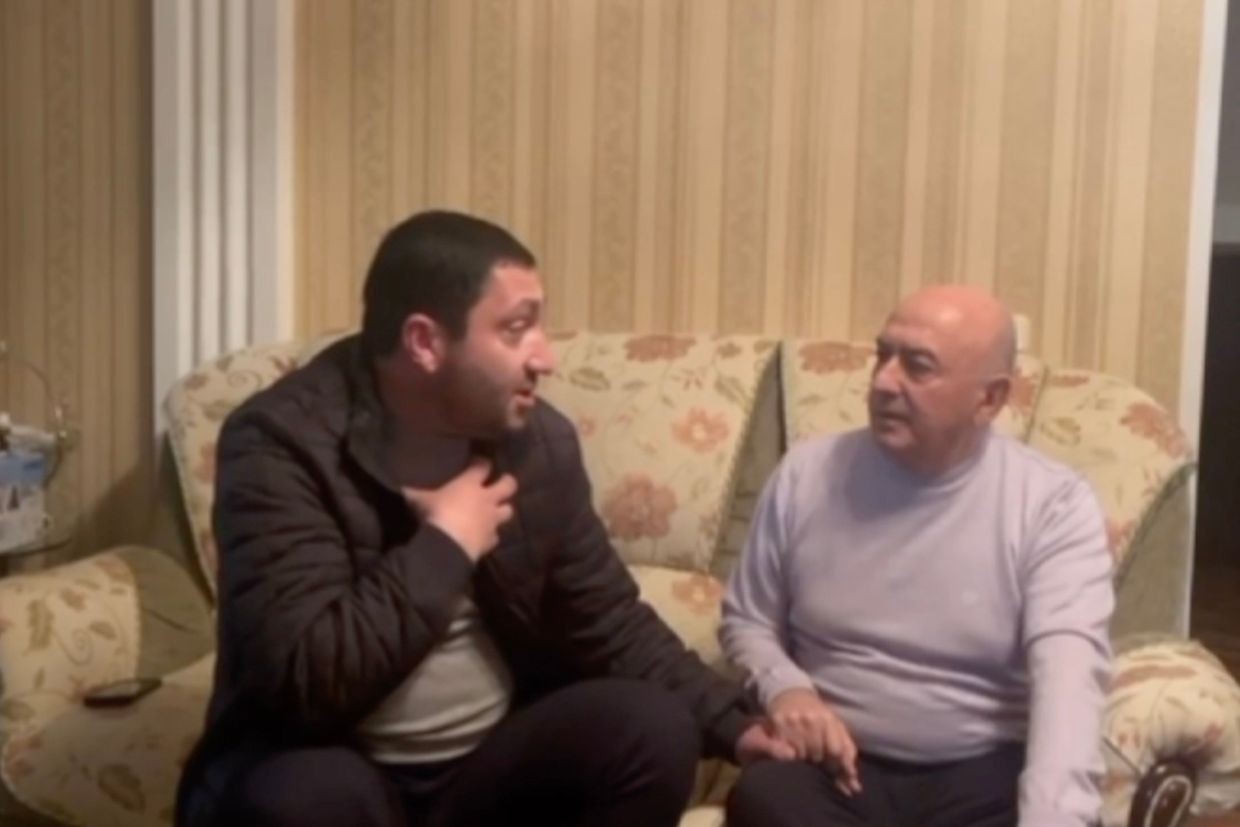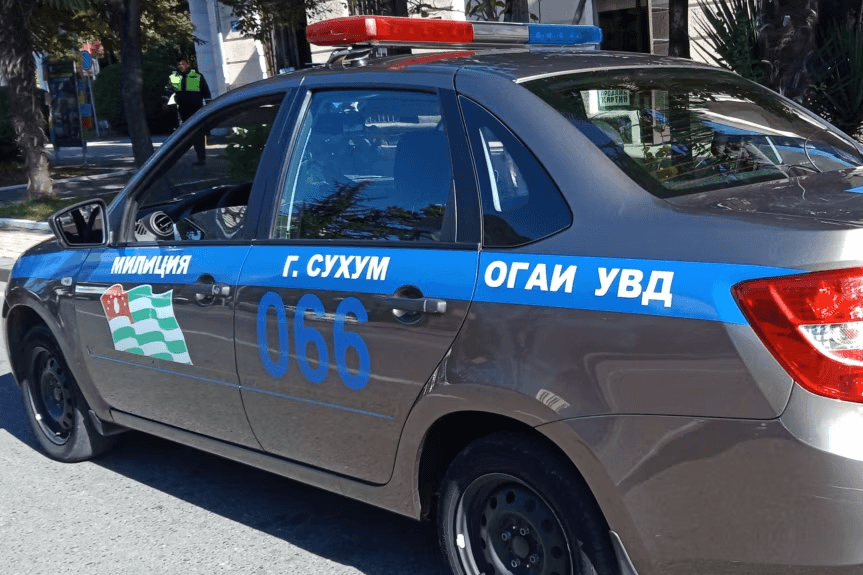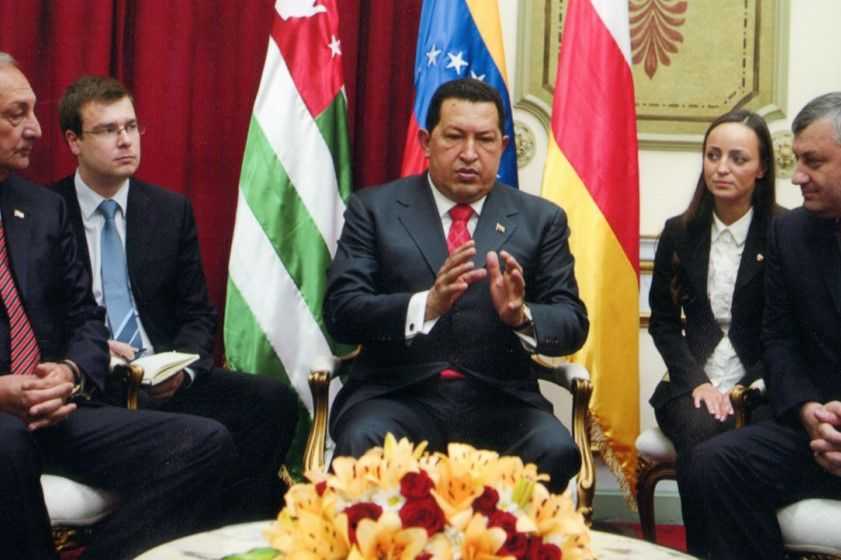Abkhazia’s Armenian community calls for protection against ‘persecution’ following presidential elections

The Armenian community in Abkhazia has demanded that the authorities protect them after a recording surfaced on the internet calling for the ‘persecution’ of ethnic Armenians in Abkhazia for their ‘political choice’ in the presidential elections.
The public statement was made on Sunday by the chair of the Armenian Community of Abkhazia, Alik Minosyan.
The statement contained eight appeals addressing the authorities and the headquarters of presidential candidates Badra Gunba and Adgur Ardzinba.
During last Saturday's elections, no candidate received an unconditional majority in snap presidential elections, the second round of which would be between the two leading candidates, Gunba and Ardzinba.
Gunba is a representative of the former government and has served as acting president briefly following President Aslan Bzhaniya’s resignation in November 2024, while Ardzinba is a member of the opposition.

The statement additionally identified two people as having made the recordings — Enver Bganba, acting President Valery Bganba’s nephew, and another individual named only as Yu. Vanaba. The community said that the recordings ‘constitute direct calls for violence and undermine interethnic unity in the Republic of Abkhazia’.
Additionally, the statement reported that heads of a number of villages where Armenians live were subjected to pressure and threatened to ‘support specific forces’ ahead of the elections.
‘The Armenian community of the Republic of Abkhazia has refrained from making public statements, adhering to the principles of non-interference in the electoral processes. However, the situation in which open calls for violence and restriction of constitutional rights are being made requires an immediate and tough response’, read the statement.
The community demanded a ‘strict legal assessment of the statements’ as well as criminal investigations into them to ‘bring the perpetrators to justice’.
They also demanded that the authorities ‘guarantee the safety’ of Armenians and ‘all those who are subjected to pressure or threats during the election process’, as well as to take ‘comprehensive measures to suppress any campaigning that incites discord and hostility on the basis of nationality’.
Minosyan also demanded that the response to his appeal be sent to the Armenian community and be published by official state media ‘as soon as possible’.
At the end of January, local media outlets in Abkhazia drew attention to rumours being spread that Abkhazia’s Armenian community may be targeted if Ardzinba would win the election. At that time, the Arm.Info Armenian outlet claimed that Ardzinba, along with businessperson Levan Mikaa, was one of the ‘main initiators of the persecution of Armenians’ in Abkhazia.
Citing anonymous sources, the outlet also alleged that the opposition has ‘close ties with radical Turkish nationalists and Turkish intelligence’.
Arm.Info added that the ‘information has been circulating in Armenian social networks and needs verification’.
Abkhaz World refuted the claims, arguing that ‘these provocations are orchestrated by forces aiming to destabilise the situation in Abkhazia and sow inter-ethnic discord’.
‘Localise this hotbed of tension’
On Monday, Apsnypress reported that Bganba held a meeting with the heads of Abkhazia's security forces, during which they discussed the appeal.
‘We must understand what happened and localize this hotbed of tension, otherwise, it may cause bad developments’, Bganba said.
Acting Interior Minister Robert Kiut reported that a decision was made to strengthen control in the territories where Armenians ‘live compactly’.
Also on Monday, the Armenian community reported, that the honorary representative of the Armenian community, Khachik Minasyan, received one of the recording participants, Enver Bganba, at his home who apologised for his words, saying that it was ‘an emotional outburst’.
The aim of the meeting, as claimed by the statement of the Armenian community, was to ‘achieve reconciliation and prevent unlawful statements’, with a note that the meeting took place ‘in a constructive atmosphere’.
RFE/RL referred to pro-Ardzinba Telegram channels stating that the majority of Armenians in Abkhazia voted for Gunba, who is considered to be more pro-Russian, although Ardzinba is also openly supportive of Russia. They also pointed to the information spread by pro-government circles that they assumed could impact the votes of Armenians.
‘During the pre-election period, local authorities circulated that this figure [Ardzinba] upholds the pro-Turkish line, had studied at a Turkish college and that if he won, Abkhazia would sever ties with Russia and become a new centre of Turkish influence in the Caucasus’.
There have been varying reports on the population of Armenians in Abkhazia. According to RFE/RL, they represent the second largest ethnicity, after Abkhaz, while the Abkhazian government said in 2020 that they came in third place, following ethnic Georgians. Both sources wrote that the Armenian population numbers at least 40,000, out of a total estimated population of 245,000 in Abkhazia.
For ease of reading, we choose not to use qualifiers such as ‘de facto’, ‘unrecognised’, or ‘partially recognised’ when discussing institutions or political positions within Abkhazia, Nagorno-Karabakh, and South Ossetia. This does not imply a position on their status.










